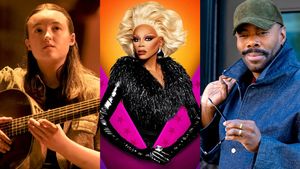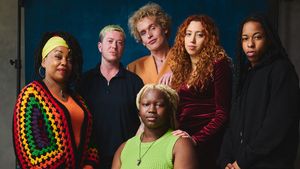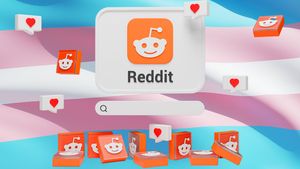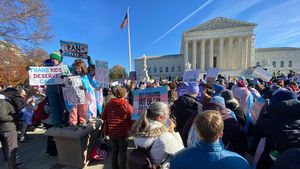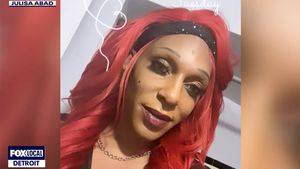Treatment GuideJust DiagnosedSex & DatingAfrican AmericanStigmaAsk the HIV DocPrEP En EspañolNewsVoicesPrint IssueVideoOut 100
CONTACTCAREER OPPORTUNITIESADVERTISE WITH USPRIVACY POLICYPRIVACY PREFERENCESTERMS OF USELEGAL NOTICE
© 2025 Pride Publishing Inc.
All Rights reserved
All Rights reserved
Scroll To Top
By continuing to use our site, you agree to our Privacy Policy and Terms of Use.
One of the most shocking statistics ever to be reported during the 25-year course of the U.S. HIV epidemic was announced in June 2005 by the Centers for Disease Control and Prevention: Nearly half of urban African-American men who have sex with men are HIV-positive. That kind of prevalence rate is usually seen only in sub-Saharan African countries where HIV is spreading nearly unchecked through unprotected heterosexual sex. But these numbers are happening right here at home among men one would assume are well aware of how to protect themselves from infection. The study, conducted in five major urban areas, showed that 46% of the surveyed African-American men who have sex with other men'but some with women as well'were HIV-positive; comparatively 21% of white and 17% of Hispanic gay and bisexual men were found to be HIV-positive. To make matters worse, 64% of the black men found to be infected'nearly two thirds'were unaware they carried the virus, while only 18% of Hispanic and 11% of white men were similarly unaware they were infected. While the data can be directly applied only to the five cities surveyed'New York, Baltimore, Miami, San Francisco, and Los Angeles'Ronald Valdiserri, deputy director of the CDC's National Center for HIV, STD, and TB Prevention, says the study was designed to be representative of men who have sex with men across the nation. Failure All Around Members of the Institute for Gay Men's Health, a joint effort between AIDS Project Los Angeles and New York City's Gay Men's Health Crisis, say these alarmingly high rates of HIV infection among black men who have sex with men clearly indicate that prevention efforts have failed this group. In fact, they doubt that there have been any significant prevention efforts targeting them. 'There are so few messages out there for black men,' laments George Ayala, director of the Institute for Gay Men's Health. Compounding the frustration felt about the new statistics, black AIDS advocates announced they were even more stunned by the fact that the CDC released the data without an accompanying game plan to address the alarming infection rate. Their anger over what they perceived as a lack of action on the part of the federal government catalyzed a group of them to form a new advocacy coalition to fight the tide of the epidemic among black men. Called the National Black Gay Men's Advocacy Coalition, the group is made up of health advocates from across the country who hope to successfully encourage the federal government to better target black men with prevention efforts and to channel more money into research about why prevalence rates are so high among African-Americans. In April members of the group kicked off their campaign with a lobbying day on Capitol Hill, pressing their agenda with Congress, members of the Bush administration, and the Department of Health and Human Services. 'At this point, given the epidemiology of the epidemic, it is impossible to address the HIV epidemic in any meaningful way without addressing black men,' says Mark McLaurin, one of the group's founding members. 'The reason for this national coalition is to ensure that we are at the table when that input is asked for and we are able to advocate for the things that we know we need.' 'We're trying to let our legislators know that this is a population that has been misrepresented and underfunded, and the money needs to be put into that specific population,' says Rudy Carn, the coalition's chairman and head of the National AIDS Education and Services for Minorities, which mostly targets black men in the Atlanta area. Coalition members also hope to empower grassroots groups around the country to help address HIV issues among African-Americans. A Sea Change When the first cases of what was to become known as AIDS surfaced 25 years ago it appeared to be a disease that affected mostly gay white men. In July 1982, when the CDC issued the first of what evolved into the 'HIV/AIDS Surveillance Report,' nearly 95% of the total cases of the disease were among men, and 61.5% of the cases were among Caucasians. Blacks made up 19% of cases. Over the subsequent quarter century of the epidemic the figures have shifted so that HIV is now devastating black Americans more than any other segment of the U.S. population. About half of all new infections are among African-Americans, male or female. Black men in particular'both men who have sex with other men and men who are exclusively heterosexual'are suffering the worst. According to the CDC, black men constituted 32% of all new HIV diagnoses between 2001 and 2004 in the 33 states with names-based HIV case reporting. They were diagnosed with HIV at a rate seven times that of white men and nearly twice that of black women. The fact that the diagnosis rate for black women even approaches that of African-American men might be testament to the fact that some of these black men are indeed passing the virus along to women. The specifics of exactly how the virus is heterosexually transmitted creates much debate. A CDC study published in the Journal of the National Medicine Association in July 2005 casts doubt on the severity of the much-touted 'down low' issue. The report found that only 2% of black men are bisexually active and that men who hide their sexual orientation are actually more likely to practice safer sex than black men who are open about sometimes'or always'having sex with other men. On the other hand, while an estimated 49% of the black men in the recent CDC analysis of new HIV diagnoses were infected through sex with other men, 25% contracted HIV through high-risk heterosexual contact, and 19% from injection-drug use, which means that many of these men are likely to engage in heterosexual intercourse and expose their female sex partners to the virus. Still No Answers Gregorio A. Millet, MPH, a behavioral scientist at the CDC's Division of HIV/AIDS Prevention, was the lead author of the report about the down low. He also is the head writer of a just-released CDC study that reviews available research supporting'or rejecting'the myriad hypotheses about why HIV rates are so high among black men who have sex with men [see the accompanying article 'Lost in Theory']. He says some of the more solidly supported hypotheses extend to heterosexual black men as well, in particular when it comes to their 'sexual networks' and the higher rates of sexually transmitted diseases in the population of black men overall. But Millet says more research is needed to understand the sociocultural factors that contribute to HIV infections before any conclusions can be drawn. He reports that the CDC is pursuing several research projects that specifically analyze why HIV hits black men who have sex with other men so hard. He also counters criticism from groups like the Institute for Gay Men's Health that the federal agency is asleep at the wheel when it comes to this particular demographic group. 'I do believe that the CDC has been involved in many efforts to really address this issue among black [men] for quite some time,' he says, pointing to such ongoing prevention programs as Many Men, Many Voices, an STD and HIV prevention program for gay men of color that uses group discussion sessions to identify and address specific risk behaviors. 'Reducing the toll among African-American [men who have sex with men], and African-Americans overall, will require a comprehensive and sustained response,' Millet says. 'There is really is no simple solution. There are many complex factors that we have to deal with: stigma, racism, denial, poverty. This really requires a comprehensive approach where we have to have sustained partnerships between the government, community, community leaders, community-based organizations, health care providers, and families.' The National Black Gay Men's Advocacy Coalition's McLaurin agrees that the issues influencing HIV's spread among African-Americans are complex, but he adds that general health, cultural, and societal problems affecting black communities must also be addressed. 'Just handing someone a condom,' he says, 'when you haven't addressed that they may not have eaten that day, when they have mental health issues that they're not addressing, or if they have housing needs that they're not addressing'it really doesn't work in a doubly or triply marginalized population.' HIV prevention in our community is a failure.'
From our Sponsors
Most Popular
Lexi Love comes out as HIV+ after Trump deletes federal resources
January 23 2025 11:23 AM
Grindr is reminding us why jockstraps are so sexy and iconic
May 02 2025 5:36 PM
BREAKING NEWS: Trump admin moves to end federal HIV prevention programs
March 18 2025 6:10 PM
Trump's orders prompt CDC to erase HIV resources
January 31 2025 5:29 PM
Celebrating Black History Month with our annual African American issue
February 01 2025 3:28 PM
Tyler TerMeer vows to continue to fight for health care for all
January 28 2025 3:00 PM
Discover the power of Wellness in your life
March 26 2025 12:41 PM
Plus: Featured Video
Latest Stories
Dancer. Healer. Survivor. DéShaun Armbrister is all of the above
July 02 2025 8:23 PM
Two right-wing Supreme Court justices signal they may uphold access to PrEP and more
April 21 2025 4:10 PM
Broadway's best raise over $1 million for LGBTQ+ and HIV causes
April 03 2025 7:15 PM
Plus nominated for 2025 GLAAD Media Award
January 22 2025 12:42 PM
'RuPaul's Drag Race' star Trinity K Bonet quietly comes out trans
December 15 2024 6:27 PM
AIDS Memorial Quilt displayed at White House for the first time
December 02 2024 1:21 PM
BREAKING: Supreme Court rules to save free access to preventive care, including PrEP
June 27 2025 10:32 AM
1985: the year the AIDS crisis finally broke through the silence
June 26 2025 11:24 AM
Trump admin guts $258 million in funding for HIV vaccine research
June 03 2025 3:47 PM
500,000 Children at Risk: PEPFAR Funding Crisis
April 08 2025 3:51 PM
The Talk Season 5 premieres this spring with HIV guidance for the newly diagnosed
March 26 2025 1:00 PM
Jess King is here to help you live your happiest, healthiest life yet
March 24 2025 4:35 PM
A camp for HIV-positive kids is for sale. Here's why its founder is celebrating
January 02 2025 12:21 PM
VIDEO: A man living with HIV discusses his journey to fatherhood
June 10 2025 4:58 PM
HRC holds 'die-in' to protest Trump health care cuts
April 28 2025 2:11 PM
Season 4 of The Switch on resilience & radical self-love returns this spring
March 26 2025 12:20 PM
Gerald Garth is keeping people of color happy and healthy through trying times
March 11 2025 3:38 PM
This long-term HIV survivor says testosterone therapy helped save his life.
December 16 2024 8:00 PM
Ricky Martin delivers showstopping performance for 2024 World AIDS Day
December 05 2024 12:08 PM












































